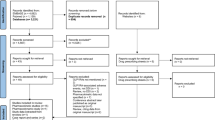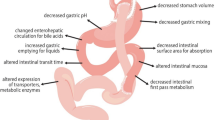Abstract
Purpose
Itopride is an effective gastroprokinetic agent mainly used for the treatment of functional dyspepsia. Flavin-containing monooxygenase 3 (FMO3) has been confirmed to be the key enzyme involved in the main itopride metabolic pathway. We investigated whether the FMO3 genotypes can affect itopride metabolism in Chinese healthy volunteers.
Methods
Twelve healthy volunteers who had been genotyped for FMO3 gene were selected to participate in our study. Volunteers were given 50 mg itopride orally and then blood samples were collected from 0 to 24 h. The plasma concentrations of itopride and itopride N-oxide were determined by HPLC-MS/MS method.
Results
Itopride and itopride N-oxide both exhibit FMO3 genotype-dependent pharmacokinetic profiles. The area under the plasma concentration–time curve (AUC) of itopride increased by 127.82 ± 41.99 % (P < 0.001) and the AUC of itopride N-oxide decreased by 30.30 ± 25.70 % (P < 0.05) in homozygous FMO3 hhdd subjects (n = 6) compared with the HHDD group (n = 6). The CL/F value was lower in the hhdd group than that in the HHDD group (36.60 ± 7.06 vs. 80.20 ± 15.34 L/h, P < 0.001). But no significant differences in t1/2 value and tmax of itopride and itopride N-oxide were observed between these two genotypes.
Conclusion
The FMO3 allele can significantly affect the metabolism of itopride. The pharmacokinetic parameters of both itopride and itopride N-oxide were significantly different between these two genotypes.



Similar content being viewed by others
References
Huang X, Lv B, Zhang S, Fan Y-H, Meng L-N (2012) Itopride therapy for functional dyspepsia: a meta-analysis. World J Gastroenterol 18(48):7371–7377
Miyashita YN, Mizutani F, Morikawa K, Kato H, Ito Y (1991) Stimulatory effect of N-[4-[2-(dimethylamino)-ethoxy] benzyl]-3,4- dimethoxybenzamide hydrochloride (HSR-803) on normal and delayed gastrointestinal propulsion. Jpn J Pharmacol 56(3):261–9
Iwanaga Y, Suzuki N, Kato K, Kimura T, Morikawa K, Kato H et al (1993) Stimulatory effects of HSR-803 on ileal motor activity. Jpn J Pharmacol 62(4):395–401
Holtmann G, Talley NJ, Liebregts T, Adam B, Parow C (2006) A placebo-controlled trial of itopride in functional dyspepsia. N Engl J Med 354(8):832–40
Nakashima M, Uematsu T, Kanamaru M, Mizuno A, Matsubayashi K, Okazaki O et al (1993) Phase I study of DQ-2556, a new parenteral 3-quaternary ammonium cephalosporin antibiotic. J Clin Pharmacol 33(1):57–62
Mushiroda T, Douya R, Takahara E, Nagata O (2000) The involvement of flavin-containing monooxygenase but not CYP3A4 in metabolism of itopride hydrochloride, a gastroprokinetic agent: comparison with cisapride and mosapride citrate. Drug Metab Dispos 28(10):1231–7
Park CS, Roh HK, Lee WK, Cha YN (2000) Oxidation of ranitidine by isozymes of flavin-containing monooxygenase and cytochrome P450. Jpn J Pharmacol 84(2):213–20
Stormer E, Roots I, Brockmoller J (2000) Benzydamine N-oxidation as an index reaction reflecting FMO activity in human liver microsomes and impact of FMO3 polymorphisms on enzyme activity. Br J Clin Pharmacol 50(6):553–61
Sachse C, Ruschen S, Dettling M, Schley J, Bauer S, Muller-Oerlinghausen B et al (1999) Flavin monooxygenase 3 (FMO3) polymorphism in a white population: allele frequencies, mutation linkage, and functional effects on clozapine and caffeine metabolism. Clin Pharmacol Ther 66(4):431–8
Hisamuddin IM, Wehbi MA, Chao A, Wyre HW, Hylind LM, Giardiello FM et al (2004) Genetic polymorphisms of human flavin monooxygenase 3 in sulindac-mediated primary chemoprevention of familial adenomatous polyposis. Clin Cancer Res 10(24):8357–62
Koukouritaki SB, Poch MT, Cabacungan ET, McCarver DG, Hines RN (2005) Discovery of novel flavin-containing monooxygenase 3 (FMO3) single nucleotide polymorphisms and functional analysis of upstream haplotype variants. Mol Pharmacol 68(2):383–92
Kang JH, Chung WG, Lee KH, Park CS, Kang JS, Shin IC et al (2000) Phenotypes of flavin-containing monooxygenase activity determined by ranitidine N-oxidation are positively correlated with genotypes of linked FM03 gene mutations in a Korean population. Pharmacogenetics 10(1):67–78
Zschocke J, Kohlmueller D, Quak E, Meissner T, Hoffmann GF, Mayatepek E (1999) Mild trimethylaminuria caused by common variants in FMO3 gene. Lancet 354(9181):834–5
Lee HW, Seo JH, Choi SK, Lee KT (2007) Determination of itopride in human plasma by liquid chromatography coupled to tandem mass spectrometric detection: application to a bioequivalence study. Anal Chim Acta 583(1):118–23
Cashman JR, Akerman BR, Forrest SM, Treacy EP (2000) Population-specific polymorphisms of the human FMO3 gene: significance for detoxication. Drug Metab Dispos 28(2):169–73
Cashman JR, Zhang J (2002) Interindividual differences of human flavin-containing monooxygenase 3: genetic polymorphisms and functional variation. Drug Metab Dispos 30(10):1043–52
Sharon KK, David EW (2005) Mammalian flavin-containing monooxygenases: structure/function, genetic polymorphisms and role in drug metabolism. Pharmacol Ther 106(3):357–87
Park CS, Kang JH, Chung WG, Yi HG, Pie JE, Park DK et al (2002) Ethnic differences in allelic frequency of two flavin-containing monooxygenase 3 (FMO3) polymorphisms: linkage and effects on in vivo and in vitro FMO activities. Pharmacogenetics 12(1):77–80
Author information
Authors and Affiliations
Corresponding author
Rights and permissions
About this article
Cite this article
Zhou, LP., Tan, ZR., Chen, H. et al. Effect of two-linked mutations of the FMO3 gene on itopride metabolism in Chinese healthy volunteers. Eur J Clin Pharmacol 70, 1333–1338 (2014). https://doi.org/10.1007/s00228-014-1724-8
Received:
Accepted:
Published:
Issue Date:
DOI: https://doi.org/10.1007/s00228-014-1724-8




